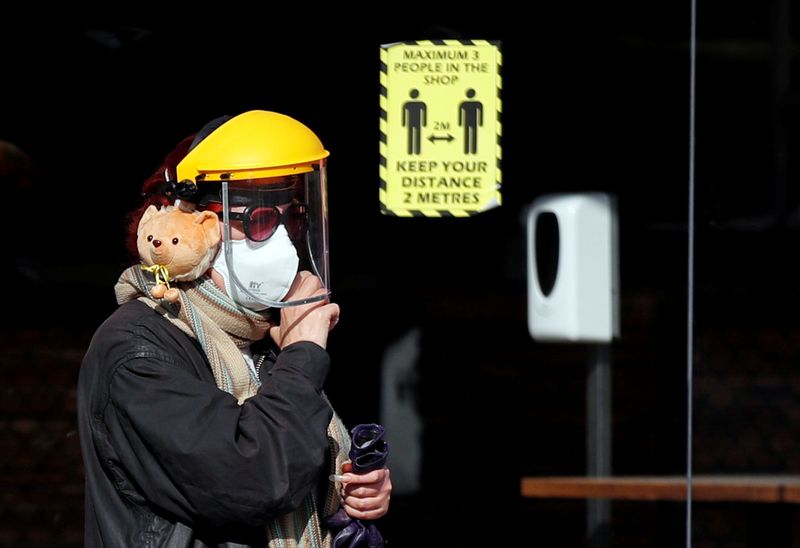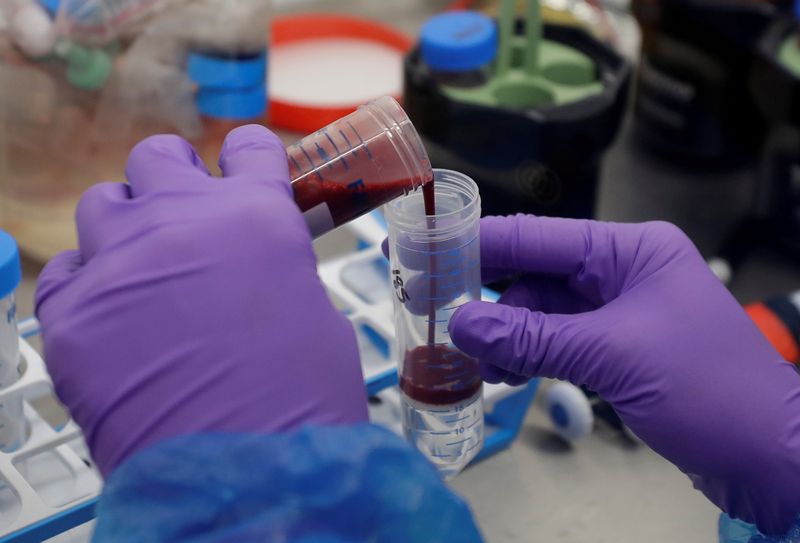LONDON (Reuters) – British government scientists said on Friday it was still likely that a resurgence in the COVID-19 epidemic was spreading exponentially despite survey data that suggested a small levelling off in a recent sharp rise of cases.
The Office for National Statistics had said there was some evidence that the steep increases in new COVID-19 cases, seen in recent weeks in England, was slowing down.
But government scientists urged caution as they published a reproduction “R” number that had risen slightly to 1.3-1.6 from 1.2-1.5, meaning that on average, every 10 people infected will infect between 13 and 16 other people.
An R number above 1 indicates the epidemic is growing exponentially.
“While there are some early indications suggesting that the growth of the epidemic might be slowing, SAGE (Scientific Advisory Group for Emergencies) urges caution and believes it is too early to draw firm conclusions,” the Government Office for Science said.
“More data are needed to accurately assess any recent changes in transmission and it is still highly likely that the epidemic is growing exponentially across the country.”
The ONS estimate said new cases of COVID-19 in England were around 8,400 per day in the latest week to Sept. 24, down from around 9,600 per day during the previous week, providing “some limited evidence” that the incidence rate may be levelling off after steep increases during August and September.
Britain reported a slight dip in those testing positive on Thursday after two straight days of more than 7,000 new daily cases. The ONS infection survey looks to estimate infection numbers in the community beyond those who have been tested.
An estimated 116,600 people had the disease in England, up from an estimated 103,600 people last week, and the ONS added there was clear evidence of an increase in the number of people testing positive in recent weeks.
(Editing by Stephen Addison)


























